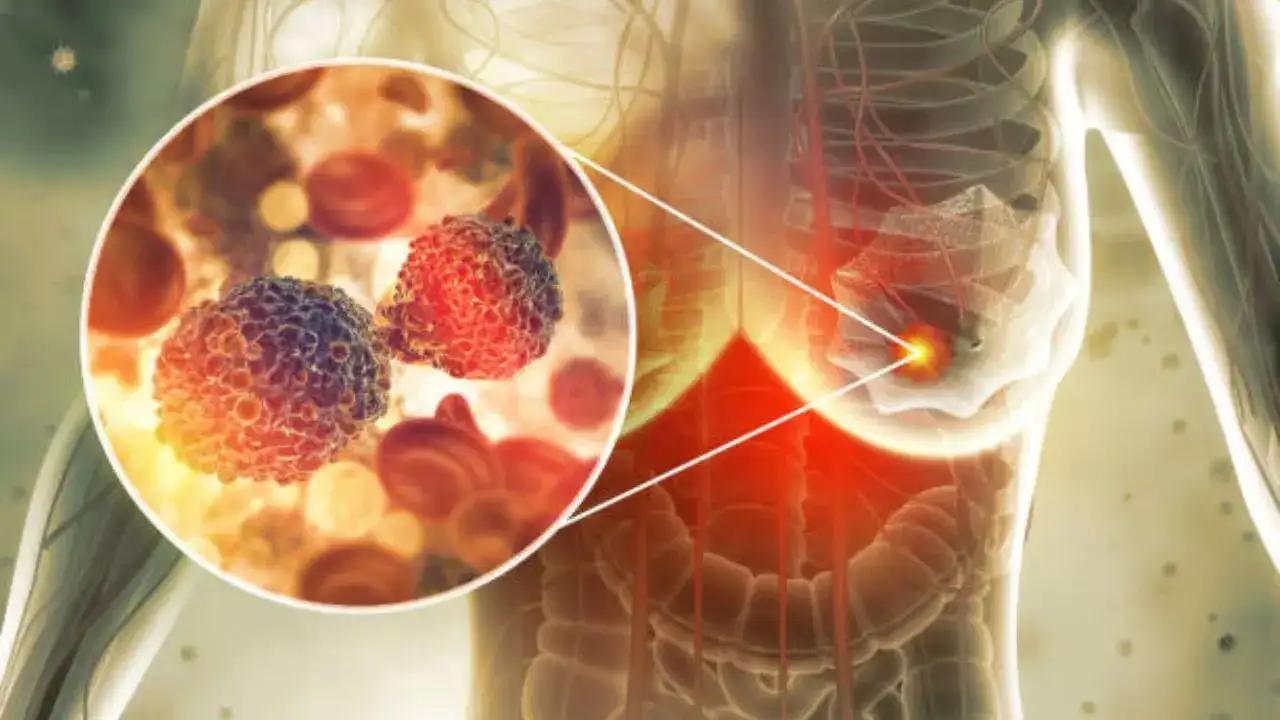
Recently concluded phase 3 trials known as SERENA-6 had camizestrant tested in combination with a cyclin-dependent kinase
A new study has found that Camizestrant, a new pill made by AstraZeneca, can delay breast cancer progression in those in the advanced stages along with ESR1 mutations. According to oncologists, the once-a-day pill could also delay chemotherapy and personalise treatment if approved for use.
This pill is touted as a long-term relief for women with stage 3 and 4 breast cancer before the disease becomes metastasised or chemotherapy becomes necessary.
The announcement came after the recently concluded phase 3 trials known as SERENA-6 that showed camizestrant tested in combination with a cyclin-dependent kinase (CDK) or 4/6 inhibitor. Scientists say it exhibited a highly statistically significant and clinically meaningful improvement in the primary endpoint of progression-free survival. The trial evaluated switching to the camizestrant combination versus continuing standard-of-care treatment or HER2-negative advanced breast cancer in patients whose tumours have an emergent ESR1 mutation.
"These impressive results demonstrate the versatility of camizestrant in combination with all the widely approved CDK4/6 inhibitors to provide a well-tolerated new potential treatment option in the first-line setting for the one in three patients with HR-positive, HER2-negative advanced breast cancer whose tumours develop ESR1 mutations during treatment with an aromatase inhibitor in combination with a CDK4/6 inhibitor,” Susan Galbraith, Executive Vice President, Oncology Haematology R&D, AstraZeneca, said in a statement.
“This critical read-out moves us one step closer to realising the potential of camizestrant to become a new standard of care as we look to shift the treatment paradigm and establish this new endocrine therapy backbone in HR-positive breast cancer,” she added.
How does camizestrant work?
According to experts, camizestrant blocks estrogen from binding to and activating estrogen receptors, which promote cancer cell growth. The mechanism is completely different from earlier hormonal therapies that focus more on blocking estrogen or reducing its production.
Camizestrant is considered a next-generation Selective Estrogen Receptor Degrader, or SERD, and is being investigated for its potential to be more effective and have fewer side effects than older drugs in this class.
Mutations in the ESR1 gene are a key driver of endocrine resistance and are widely tested for in clinical practice. While experts believe these mutations develop during treatment of the disease, they become more prevalent as the disease progresses and are associated with poor outcomes. Camizestrant is also highly effective against both wild-type and mutated ERs, potentially offering a solution for a wider range of patients.
What is breast cancer?
Breast cancer is one of the most common cancers that affect women and happens when cancerous cells in your breasts multiply and become tumours. More than 80 per cent of breast cancer cases are invasive, meaning a tumour may spread from your breast to other areas of your body. According to experts, breast cancer usually affects women aged 50 years and older, but it can also affect those who are younger.
Healthcare providers determine cancer types and subtypes so they can tailor treatment to be as effective as possible with the fewest possible side effects.
